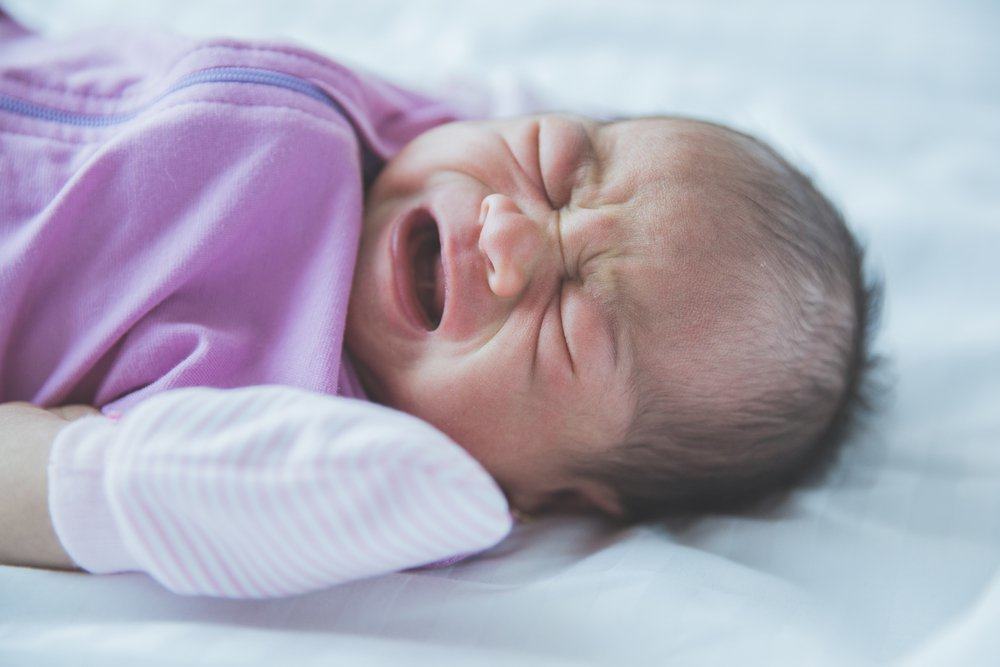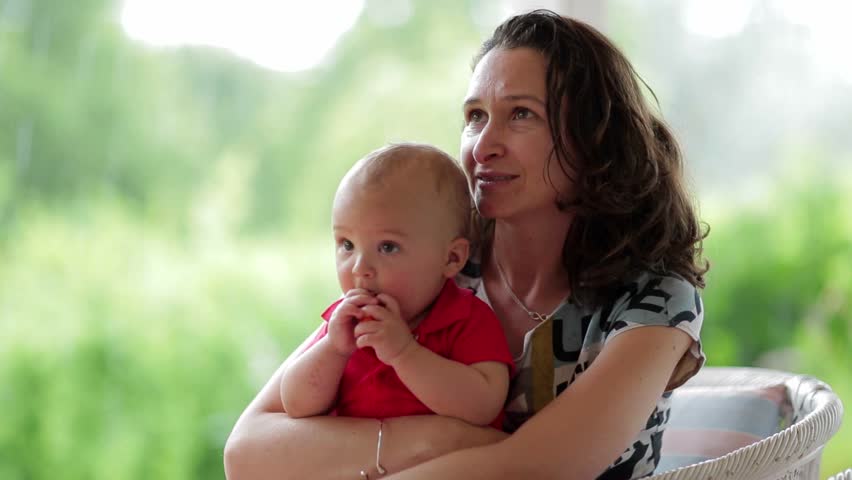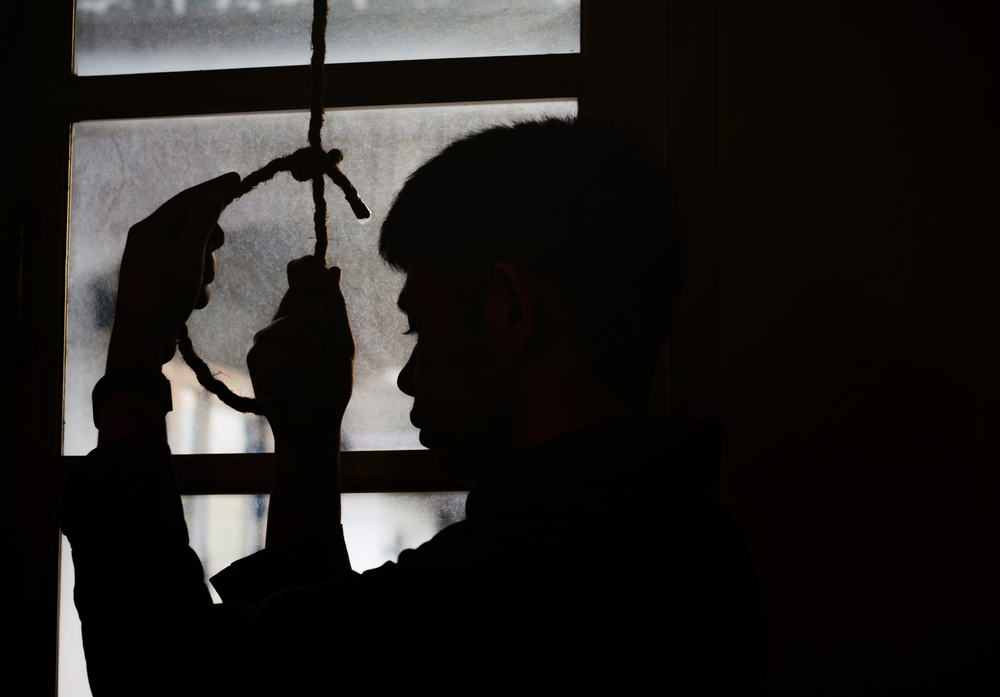Contents:
- Medical Video: New App Tells Deaf Parents When And Why Their Baby Is Crying | UCLA Health News
- Why do babies cry?
- Hungry baby
- Babies want to cry
- Babies need touch
- Babies want to sleep
- Babies are cold or hot
- Babies need diaper change
- Sick baby
- What should I do immediately when the baby cries?
Medical Video: New App Tells Deaf Parents When And Why Their Baby Is Crying | UCLA Health News
Often we hear babies crying, especially in newborns. You as a new parent may be confused about how to treat your baby when he cries. A baby's cry that doesn't stop even though you have tried to calm him sometimes makes you panic.
Why do babies cry?
Baby crying is a way for babies to communicate with you. Babies convey what they want and what they need through crying, so this baby's crying has many meanings. The following is the meaning of baby crying:
Hungry baby
Hungry is usually the most common cause of why babies cry. Newborns usually cry more, which may be because they feel hungry more often. The newborn has a small stomach so that it is only able to accommodate small amounts of food and the food does not last long in the stomach, this makes the newborn hungry faster. If the baby cries, you can give him breast milk. Give breast milk to babies as often as possible to the baby's wishes, this is commonly called breast milk on-demand.
Or, if you don't give breast milk but give formula milk, give him formula milk with a distance of at least two hours after he last suckles. S, every baby has different needs, there are those who drink more milk less frequently and some who drink milk more often in smaller amounts. Know your baby's needs well. You as a mother are the ones who best understand your baby compared to others.
Babies want to cry
In infants under the age of 4 months, crying in the evening and at night is a natural thing to happen. Not that there is a problem with your baby. Even though you comforted him and tried to understand his needs, your baby did not stop crying until his face turned red and tired. Crying that is endless, usually takes place within a few hours a day, called colic. Colic may be related to stomach problems caused by allergies or milk intolerance. Or there are also theories that say that colic is a way for babies to tell their experiences and new stimuli after they have passed a long day.
Babies need touch
Sometimes babies cry just because they feel they want to be touched and cared for. If the baby cries, you can hug him, carry him, comfort him, or just make physical contact with him. This might give him comfort and sense of attention by those around him. By hugging or holding her, the baby may feel comfortable when he hears your heartbeat, feels warmer, and maybe he is happy with the smell of your body.
Babies want to sleep
Another meaning of baby crying is that he may be sleepy and want to sleep. Sometimes a baby has difficulty sleeping, he must find a comfortable position so he can sleep well. Too many people around him might make him unable to sleep so he cried. Babies who cry because they need sleep usually show signs, such as not being interested in toys or people, rubbing their eyes, looking teary, and yawning. If this happens, carry the baby and bring him to a quiet place, and "lull" the baby until he falls asleep.
Babies are cold or hot
Babies are still very sensitive to the environment around them. He can't stand the temperature that is too cold or too hot for him, so this can make him cry. You can check whether your baby is hot or cold by holding his stomach. If the stomach feels cold, give it a blanket, or if the stomach feels hot, remove the blanket. Normal if the baby feels cold, wear baby clothes more than one layer, this can help give him warmth.
Babies need diaper change
Babies will certainly cry if their diapers are wet, which is caused by urinating or defecating. Some babies may not cry immediately after their diapers are wet, they will only cry if they feel uncomfortable or have irritated skin. When the baby cries, it's best to immediately check the diaper and if the diaper gets wet, change the diaper immediately. Too long diapers are left wet or not replaced can cause skin on the baby's buttocks to be irritated and the baby will feel uncomfortable with this.
Sick baby
The baby will cry if he feels unwell. If your baby is not healthy, maybe he will cry in a slightly different tone (usually with a rather weak tone) than usual or maybe just the opposite, he will cry less than usual if he is sick. Only you know the difference. Teething can also be the reason why babies cry constantly. Babies usually cry and rest more often a week before their teeth grow. If the baby's cry is accompanied by fever, vomiting, diarrhea, or constipation, you should immediately take your baby to the doctor.
What should I do immediately when the baby cries?
Do not panic! There are several things that you can do immediately when you hear a baby crying.
- First, you can hold it so that the baby is calmer, while checking the diaper, is it wet. If so, change the diaper immediately. Holding or hugging a baby is the best way to make a baby comfortable.
- Try feeding your baby immediately when he cries. Maybe he is hungry, especially if he last ate more than 3 hours ago.
- If the baby does not want to suckle and the baby's diaper is not wet, try to get the baby to move, either by holding while rocking or swinging. If the sound of crying is weak, maybe the baby is tired and wants to sleep, try to bring the baby to a quieter place. You can also sing a song so the baby falls asleep.
- Divert baby's attention so the baby doesn't cry anymore, you can do "ci-luk-ba" or make funny expressions to make the baby laugh. Entertaining a baby is also one way for babies to stop crying.
- Gently massage the baby. Babies like to be touched so that massaging a baby might calm a crying baby.
- Swaddling babies. During the first 3-4 months, the baby may feel more comfortable when dibedong. This gives him the comfort he feels when he is still in the womb. Swaddling babies can give them warmth.
READ ALSO
- How to Communicate with a Newborn Baby
- Causes of Stomach Pain in Babies
- Are My Babies Drinking Enough Breast Milk?












